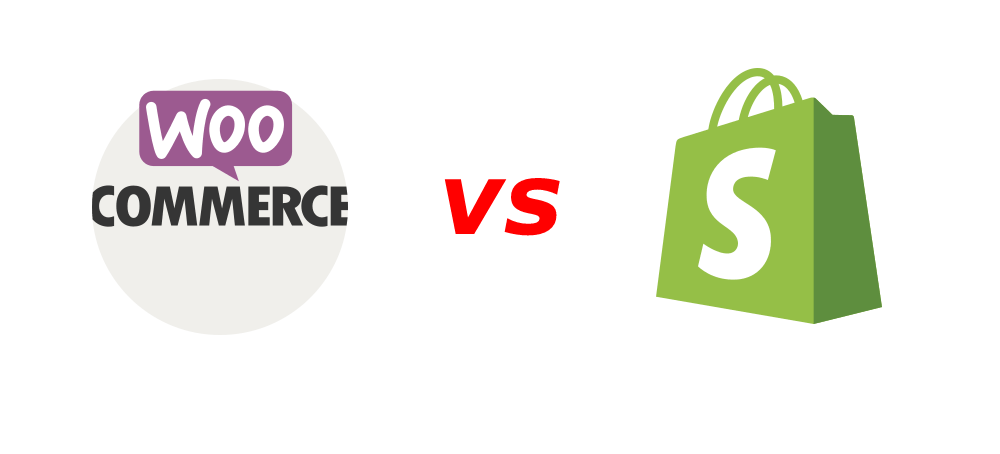
If you're looking to start an online store, you've likely heard of both WooCommerce and Shopify. Both platforms offer an easy way to set up an online store, but which one is better for you? In this article, we'll compare WooCommerce vs Shopify and help you decide which one is the right choice for your business.
| WooCommerce | Shopify |
| WooCommerce is a free and open-source WordPress plugin that allows you to create an online store. It was created by the developers at WooThemes and was acquired by Automattic, the company behind WordPress, in 2015. WooCommerce has a vast user base, and it is estimated that it powers over 30% of all online stores. | Shopify is a hosted e-commerce platform that allows you to create an online store without any technical knowledge. It was founded in 2004 and has since grown to become one of the most popular e-commerce platforms. Shopify offers everything you need to set up and run an online store, including hosting, payment processing, and inventory management. |
| Pricing | |
| When it comes to pricing, WooCommerce is a more affordable option. The plugin itself is free, but you will need to pay for web hosting, a domain name, and an SSL certificate. These costs can range from $10 to $30 per month, depending on your needs. Additionally, you may need to purchase paid themes and plugins to add functionality to your online store. | Shopify, on the other hand, offers a more straightforward pricing model. There are three plans to choose from, Basic Shopify, Shopify, and Advanced Shopify. The prices range from $29 to $299 per month. Each plan includes web hosting, a domain name, SSL certificate, and access to the Shopify platform. |
| Ease of Use | |
| WooCommerce requires some technical knowledge to set up, as it is a plugin that needs to be installed on a WordPress site. If you're not familiar with WordPress, you may find the setup process to be a bit daunting. However, once you have WooCommerce installed, it's relatively easy to use. The platform offers a user-friendly interface, and adding products and managing orders is straightforward. | Shopify is designed to be user-friendly and straightforward to use. The platform offers a drag-and-drop interface, which makes it easy to add products, manage orders, and customize your online store. Additionally, Shopify offers 24/7 customer support, which can be helpful if you run into any issues. |
| Customization | |
| When it comes to customization, WooCommerce is the clear winner. As an open-source platform, there are thousands of free and paid themes and plugins available that allow you to add functionality and customize the look and feel of your online store. Additionally, if you have coding knowledge, you can make customizations to your store's code. | Shopify also offers a range of customization options, but they are limited compared to WooCommerce. While you can customize the look and feel of your online store, you may need to purchase paid themes and plugins to add functionality. |
| Features: Both WooCommerce and Shopify offer a range of features that can help you run your online store. WooCommerce offers features such as: | |
|
|
| Payment Processing | |
| WooCommerce allows you to choose from a range of payment processors, including PayPal, Stripe, and Square. However, you will need to set up your payment processing yourself, which can be a bit daunting if you're not familiar with the process. | Shopify offers its payment processing system, Shopify Payments, which is powered by Stripe. Shopify Payments is easy to set up and allows you to accept payments directly on your online store. Additionally, Shopify also supports a range of third-party payment gateways. |
| SEO | |
| When it comes to SEO, both WooCommerce and Shopify offer solid options. WooCommerce is built on WordPress, which is known for its SEO-friendly architecture. Additionally, WooCommerce offers a range of SEO plugins that can help you optimize your online store for search engines. | Shopify also offers SEO features such as customizable title tags, meta descriptions, and alt tags. Additionally, Shopify offers a range of SEO apps that can help you optimize your online store for search engines. |
| Scalability | |
| WooCommerce may require more technical expertise to scale. As your online store grows, you may need to optimize your web hosting, caching, and database to ensure that your site remains fast and responsive. | Shopify, on the other hand, is designed to be scalable and can handle large volumes of traffic and transactions. Additionally, Shopify offers a range of enterprise-level features, such as custom checkout experiences and advanced reporting. |
| Customer Support | |
| WooCommerce offers support through its documentation and user forums. Additionally, many WordPress developers are familiar with WooCommerce and can provide support. | Shopify offers 24/7 customer support via phone, email, and live chat. Additionally, Shopify has a vast user community, and there are many developers and experts who can provide support. |
| Security | |
| WooCommerce requires that you install an SSL certificate to ensure that your online store is secure. Additionally, WooCommerce offers a range of security plugins that can help you secure your online store. | Shopify, on the other hand, handles security for you, and all Shopify stores are automatically PCI compliant. Additionally, Shopify offers features such as fraud analysis and chargeback protection. |
Conclusion
When it comes to choosing between WooCommerce and Shopify, there isn't a one-size-fits-all answer. Both platforms offer solid options for setting up and running an online store. However, WooCommerce is better suited for those with technical knowledge who want a highly customizable online store. Shopify, on the other hand, is better suited for those who want a straightforward, easy-to-use platform with excellent customer support.
Ultimately, the decision comes down to your needs and preferences. We recommend trying out both platforms and seeing which one works best for you.
FAQs
1: Can I use Shopify with WordPress?
Yes, you can use Shopify with WordPress by using the Shopify Buy Button. The Buy Button allows you to add products from Shopify to your WordPress site.
2: Does WooCommerce offer payment processing?
Yes, WooCommerce allows you to choose from a range of payment processors, including PayPal, Stripe, and Square.
3: Is Shopify more expensive than WooCommerce?
It depends on your needs. While WooCommerce is free, you will need to pay for web hosting, a domain name, and an SSL certificate. Shopify offers a range of plans that include web hosting, a domain name, SSL certificate, and access to the Shopify platform.
4: Can I customize my online store with Shopify?
Yes, Shopify offers a range of customization options, including themes, plugins, and code customization.
5: Is WooCommerce secure?
Yes, WooCommerce takes security seriously and offers robust security features, including the need for an SSL certificate and security plugins.



Maneesh Kumar
As a multi-talented professional, I have experience as a software developer, digital marketer, SEO specialist, and content creator. Throughout my career, I have completed various projects that have enhanced my skills and knowledge in the IT field. With over six years of experience, I am well-equipped to tackle any challenge that comes my way.